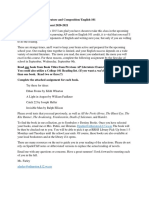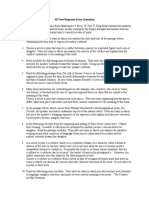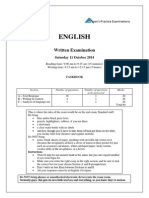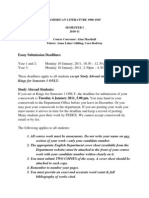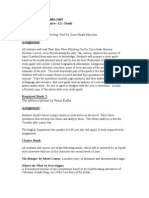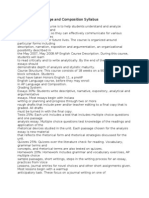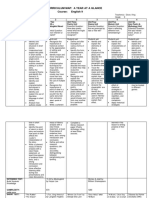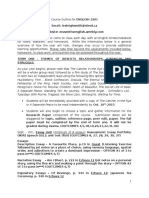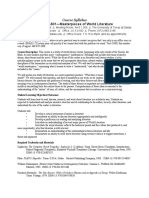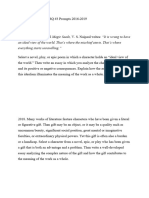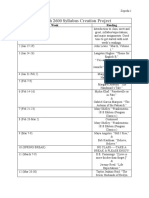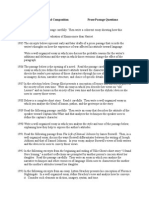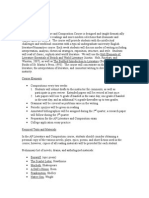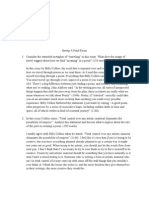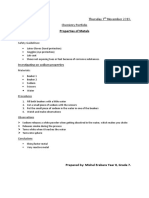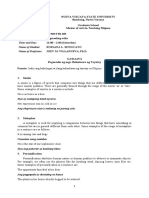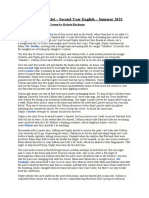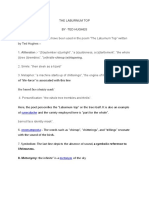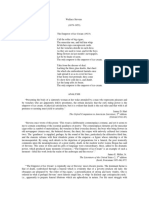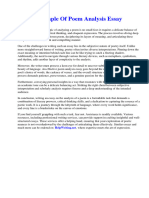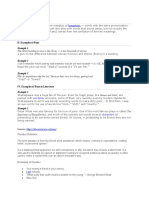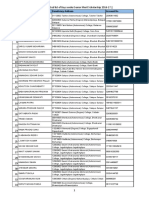0% found this document useful (0 votes)
224 views3 pagesAP Lit Summer Reading Guide
The document is a summer reading assignment from the Wakefield High School English Department for students taking AP Literature and Composition. It requires students to select and read one book from a provided list and write a 1.5 page minimum essay responding to one of ten literary analysis prompts about their chosen book. The essay must include a thesis statement addressing the prompt, at least three textual references, and the title and author of the work discussed. The assignment will be collected and graded during the first week of school and serve as an initial assessment for teachers.
Uploaded by
Ja NaCopyright
© © All Rights Reserved
We take content rights seriously. If you suspect this is your content, claim it here.
Available Formats
Download as DOCX, PDF, TXT or read online on Scribd
0% found this document useful (0 votes)
224 views3 pagesAP Lit Summer Reading Guide
The document is a summer reading assignment from the Wakefield High School English Department for students taking AP Literature and Composition. It requires students to select and read one book from a provided list and write a 1.5 page minimum essay responding to one of ten literary analysis prompts about their chosen book. The essay must include a thesis statement addressing the prompt, at least three textual references, and the title and author of the work discussed. The assignment will be collected and graded during the first week of school and serve as an initial assessment for teachers.
Uploaded by
Ja NaCopyright
© © All Rights Reserved
We take content rights seriously. If you suspect this is your content, claim it here.
Available Formats
Download as DOCX, PDF, TXT or read online on Scribd
/ 3
